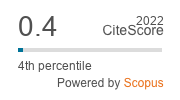Diet and body size modulate the remating behaviour of a predaceous ladybird, Coccinella transversalis (Fabricius) (Coleoptera, Coccinellidae)
DOI:
https://doi.org/10.33307/entomon.v49i1.1040Abstract
The nutritional condition and body size influence the mating and female remating behaviour of a predaceous ladybird, Coccinella transversalis. When well-fed males were provided with females of three different dietary conditions, viz. (i) well-fed, (ii) food-deprived and (iii) honey-fed, the well-fed ones were most fecund with highest percentage of egg-viability and least preoviposition period and remating refusals, while food-deprived ones showed vice-versa. However, honey-fed females laid unfertile eggs after coercively mating with males, and resisted the most to remate, which gets strengthened in the second mating trial. This indicates females’ nutritional condition modulates the females’ mating behaviour and post-mating outcomes. The adult body size was directly proportional to reproductive output with heavier females showing high fecundity and percentage of egg viability with least preoviposition period than the lighter ones. Large females resisted the least to remate with larger males than with smaller males, while large males coercively mated with smaller females. Regardless of body-size, the females’ remating resistance was enhanced in the second mating trial. Both diet and adult body size modulate the re-mating behaviour of female C. transversalis, as the food-deprived and large females greatly resisted to re-mate with smaller males.
Downloads
Published
How to Cite
Issue
Section
License
Copyright (c) 2024 Association for Advancement of Entomology

This work is licensed under a Creative Commons Attribution-ShareAlike 4.0 International License.


